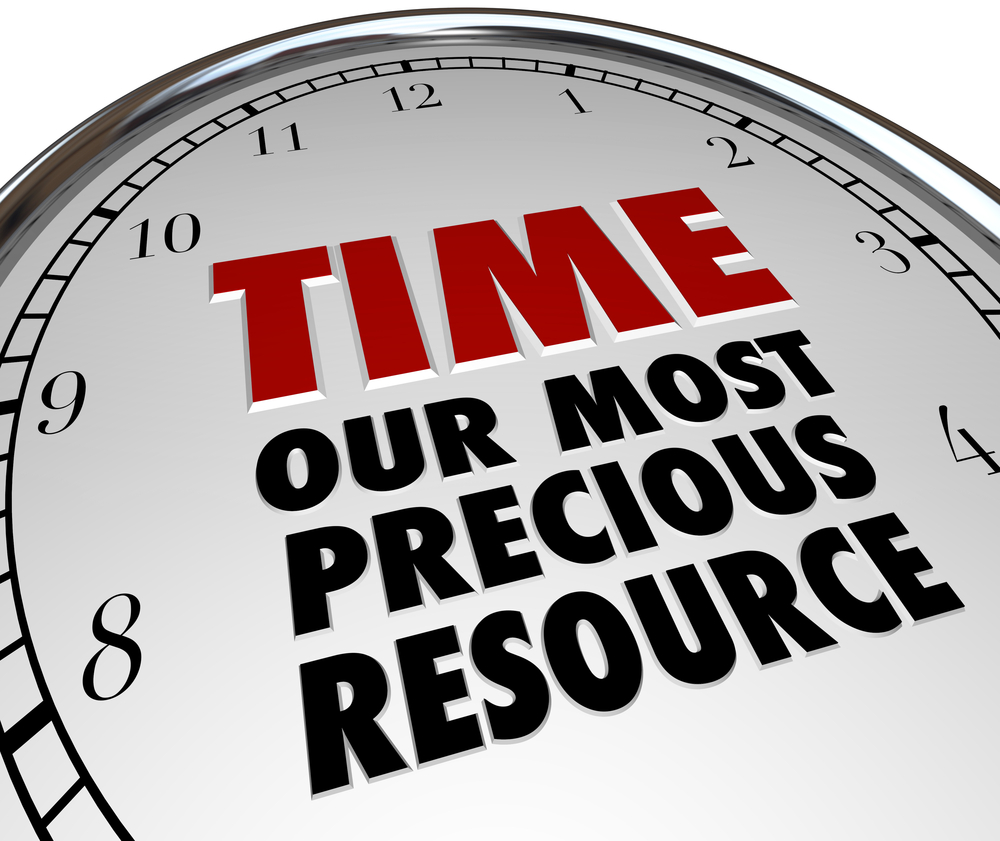Time management and emotional balance are two key components in crafting a meaningful life. In today’s fast-paced world, where time seems to fly by and emotions often run high, finding a balance between managing our time effectively and nurturing our emotional well-being has become more important than ever. With the constant demands of work, relationships, and personal goals, it can feel overwhelming to juggle everything and still maintain a sense of inner calm and fulfillment. However, by understanding the importance of time management and emotional balance and implementing practical strategies, one can create a life that is not just productive but also deeply meaningful. This article aims to explore the significance of time management and emotional balance, provide insights into their interplay, and offer practical tips to help individuals achieve a harmonious existence. Whether you are seeking guidance in prioritizing tasks, improving efficiency, or enhancing your emotional resilience, this article will serve as a valuable resource to help you carve out a more meaningful and balanced life.
The Importance of Time Management in Achieving Emotional Balance
When it comes to achieving emotional balance, time management plays a crucial role in our overall well-being. Effectively managing our time allows us to prioritize our responsibilities, reduce stress levels, and create space for self-care and relaxation. Here’s why time management is vital in maintaining emotional equilibrium:
- Minimizes Stress: A poorly managed schedule can lead to overwhelming stress, making it difficult to handle daily challenges. By organizing our time effectively, we can reduce stress levels and approach tasks with a calmer mindset. This allows us to better manage our emotions and make more rational decisions, ultimately contributing to emotional balance.
- Creates Room for Self-Care: Neglecting self-care can lead to emotional exhaustion and burnout. By incorporating time management techniques into our daily routine, we can allocate dedicated time for activities that bring us joy and relaxation. Whether it’s practicing meditation, engaging in a hobby, or spending quality time with loved ones, prioritizing self-care helps us replenish our emotional reserves and maintain balance in our lives.
By valuing and implementing effective time management strategies, we can improve our emotional well-being and create a harmonious balance between our professional and personal lives. Whether it’s setting realistic goals, delegating tasks, or learning to say no, investing time in organizing our priorities will undoubtedly lead to greater emotional stability in the long run.

Strategies for Effective Time Management that Promote Emotional Well-being
In today’s fast-paced world, finding strategies for effective time management is essential for maintaining your emotional well-being. Here are some practical tips and techniques to help you prioritize tasks and achieve a sense of balance and calm in your daily life.
1. Set Clear Goals: Start by defining what you need to accomplish and break it down into manageable tasks. Establishing clear objectives allows you to stay focused and avoid becoming overwhelmed.
2. Prioritize Important Tasks: Identify the most critical tasks that need to be completed and tackle them first. This approach ensures that you allocate your time and energy to the tasks that truly matter, reducing stress and increasing productivity.
3. Utilize Time Management Tools: Take advantage of digital tools and apps that can help you organize your schedule, set reminders, and track your progress. From online calendars to task management applications, there are numerous options available to assist you in staying on top of your commitments.
4. Practice Effective Delegation: Learn to delegate tasks that can be handled by others, allowing you to focus on more important responsibilities. Delegation not only saves time but also enables you to distribute work evenly and foster collaboration within your team or household.
5. Avoid Multitasking: Contrary to popular belief, multitasking is not an efficient way to manage time. Instead, practice monotasking by focusing on one task at a time. This approach increases productivity, reduces errors, and helps you maintain a clear mind.
6. Take Breaks and Rest: Allocate regular breaks in your schedule to recharge and rejuvenate. Stepping away from work or demanding tasks enables you to return with a fresh perspective and renewed energy. Prioritize self-care activities such as exercise, spending time with loved ones, or engaging in hobbies to promote emotional well-being.
By implementing these strategies, you can regain control of your time, reduce stress levels, and foster a sense of emotional well-being in your daily life.
Balancing Priorities: Key Recommendations for Crafting a Meaningful Life
When it comes to finding meaning in life, striking a balance between various priorities is crucial. Here are some key recommendations to help you navigate and craft a meaningful life:
1. Cultivate self-awareness: Start by understanding yourself better. Reflect on your values, strengths, and passions. Identify what truly matters to you, and align your choices accordingly. By pursuing activities that resonate with your inner self, you can build a life that feels fulfilling and purposeful.
2. Prioritize relationships: Human connection is vital for a meaningful life. Make an effort to nurture the relationships that matter to you – be it with family, friends, or even your community. Invest time and energy in building deep, meaningful connections and fostering a support system that can provide emotional sustenance in both good and challenging times.
3. Seek a sense of purpose: Find a purpose or overarching goal that inspires you and gives your life a sense of direction. Engage in activities or hobbies that contribute to this purpose. Whether it’s dedicating yourself to a cause, pursuing a specific career path, or pursuing personal growth, having a purpose can infuse your life with meaning and a sense of fulfillment.
4. Embrace balance: Striking a balance between different aspects of your life is essential to avoid burnout and live a well-rounded existence. Allocate time and energy to your work, personal relationships, physical well-being, and leisure activities. By consciously prioritizing and managing these aspects, you can create a harmonious life that feels balanced and satisfying.
Maintaining Emotional Balance: Self-care Techniques to Manage Time Effectively
Managing time effectively is crucial for maintaining emotional balance. When we feel overwhelmed or stressed due to a lack of time management, it can significantly impact our mental and emotional well-being. Here are some self-care techniques to help you manage your time more effectively and promote emotional balance:
- Create a Schedule: Start by creating a daily or weekly schedule that outlines your tasks and priorities. Having a visual representation of your time can help you identify gaps and make better use of your available hours.
- Learn to Prioritize: Focus on the tasks that are most important and urgent. Prioritizing helps you stay organized and ensure that you give your time and energy to what truly matters.
- Set Realistic Expectations: Avoid overloading your schedule with too many tasks and commitments. Be realistic about what you can accomplish within a given timeframe to avoid feeling overwhelmed.
Effective time management allows you to allocate time for both work and self-care, resulting in improved emotional well-being. Remember to take breaks, maintain a healthy work-life balance, and establish boundaries to avoid burnout. By incorporating self-care techniques into your time management strategy, you can better maintain emotional balance and promote overall wellbeing.
In Retrospect
In conclusion, mastering the art of time management is the key to achieving emotional balance and crafting a meaningful life. By understanding the value of time and learning to prioritize effectively, we can take control of our busy schedules and alleviate the stress that often accompanies the modern lifestyle. Moreover, by making conscious choices and investing our time in activities that align with our values and goals, we can create a sense of purpose and fulfillment in our lives. It is essential to remember that time is a precious and limited resource, and how we choose to spend it can significantly impact our emotional well-being and overall satisfaction. So, let us commit to being mindful of our time, fostering healthy habits, and nurturing the relationships and activities that truly matter to us. Through these efforts, we can find the balance we seek and transform our lives into ones that are truly meaningful and fulfilling.
We all know that leading a meaningful life should be everyone’s goal, but it’s an incredibly hard thing to achieve.Balancing time and emotions effectively is an important part of crafting a meaningful life.
Time management and emotional balance are key components of a meaningful life. It is important to understand the importance of managing our time and emotions in a way that can help us lead more meaningful lives. Properly managing our time allows us to be productive and efficient, and can help us achieve our goals. Spending our time in meaningful ways ensures that we are focusing on the things that are important to us. It also allows us to spend quality time with our family and friends, while still having time for ourselves.
Having strong emotional balance is also essential for leading a meaningful life. This means being aware of our emotions, understanding them, and finding ways to manage and express them in a healthy way. It also means developing healthy habits and coping mechanisms to help us deal with stress, anxiety, sadness, and other strong emotions. The key is to focus on self-care, which includes getting enough sleep, engaging in healthy activities, and taking time to reflect and process our emotions.
Time management and emotional balance are essential for leading a meaningful life. This includes understanding the importance of valuing our time and our emotions, developing habits and coping mechanisms that can help us better manage them, and finally, committing to spending our time in meaningful ways. Making time to be with friends and family, engaging in activities that bring us joy and fulfillment, and dedicating time to reflection and understanding ourselves are all essential components for crafting a meaningful life. By recognizing the value of our time and emotions and finding ways to honor them, we can make sure that our lives are full of meaning and purpose.







